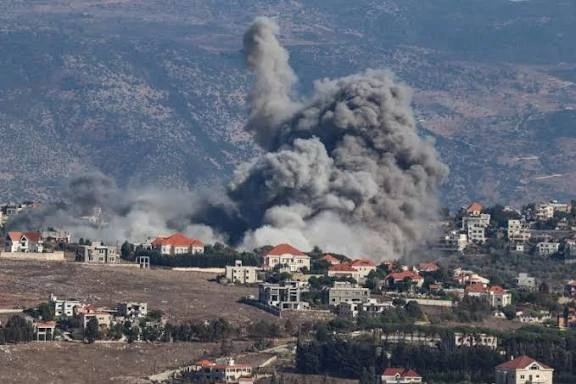Israel’s Escape From Accountability: A Driver of Continued Violations of Ceasefire Agreements
Shielded by its continued escape from accountability, backed by unconditional U.S.–European support, and enabled by the silence and complicity of Arab normalization regimes, the Israeli occupation persists in its systematic violations of ceasefire agreements in both Gaza and Lebanon, while carrying out near-daily incursions into Syria.
The occupation mounts intensive attacks on multiple fronts: strikes in Lebanon and Gaza, daily raids and mass arrests, home demolitions in the West Bank, military aircraft activity and ground infiltration in Syria, as well as repeated aggressive airstrikes on Yemen.
Israel operates freely, committing abuses against Arab and Muslim populations across the region surrounding occupied Palestine, empowered by official Arab silence and limitless U.S. support.
Unconditional American Support
U.S. backing is hardly hidden. Relations between Washington and the Israeli entity have undergone a major shift, strengthening an already entrenched strategic partnership—politically and militarily—through complete alignment, particularly after Donald Trump assumed the U.S. presidency. Trump has consistently emphasized his unwavering support for “Israel” at every opportunity.
Among the clearest examples of this support is what the Israeli presidency revealed: a message from Trump requesting a pardon for Benjamin Netanyahu, wanted by the International Criminal Court and standing trial in three separate corruption cases.
Trump stated he believes the case against Netanyahu is “political and unjustified,” adding:
“I hereby call on you to grant a full pardon to Benjamin Netanyahu, who was a great and decisive prime minister during wartime.”
With such backing—and the green light it provides—the Israeli entity continues to act with total impunity.
UN: Israel Continues to Act With Full Impunity
Last week, the UN commission investigating Israeli practices affirmed that “Israel” continues to escape accountability and is expanding its presence in Palestine, Syria, and southern Lebanon.
According to Al Jazeera, the commission warned that “Israel continues, with international support, to operate with complete impunity,” urging UN member states to fully cooperate with the International Criminal Court.
The commission stated:
“Arms sales to Israel must be banned to force it to stop its attacks.”
The international community must take action to hold Israel accountable for its violations.
Israel has given settlers “full authorization to intimidate Palestinians,” and is actively working to double the number of settlers in the occupied Golan Heights.
European Support
The Euro-Mediterranean Human Rights Monitor stated that the European Union “continues to evade its international obligations regarding the grave crimes committed by Israel in Gaza,” merely proposing selective and fragmented measures that fail to use its real leverage or contribute meaningfully to ending more than 23 months of ongoing genocide.
In a press statement, the organization described EU Commission President Ursula von der Leyen’s proposed measures as “formal and superficial, lacking seriousness, merely circumventing the EU’s legal obligations,” adding that the EU remains responsible for its failures under international law.
Von der Leyen’s proposals included:
Partially suspending the trade chapter of the EU–Israel Association Agreement
Halting direct financial payments to Israel’s government or official bodies
Sanctions on extremist Israeli ministers and settlers
Establishing a donor group for Palestine with a mechanism for Gaza’s reconstruction
However, the monitor stressed these proposals are “nothing more than symbolic political gestures,” ignoring substantive actions required by international law—such as the complete suspension of cooperation agreements, halting all military trade, banning settlement products, restricting visas, and freezing all technical or logistical support that directly or indirectly facilitates Israeli crimes.
A Ceasefire in Name Only
Commenting on Israel’s breaches of the Gaza ceasefire, writer Sanam Vakil noted in The Guardian that recent Israeli airstrikes—which killed over 300 people—demonstrate the fragility of the current arrangements.
She explained that this is not the first breach since the ceasefire took effect on October 10, but part of a series of repeated violations that show that without strong enforcement mechanisms, the ceasefire exists in name only.
Israel claims the strikes were in response to gunfire allegedly from Hamas in Rafah, which supposedly killed an Israeli reservist—claims Hamas denies. Israel then launched further strikes on Gaza City and Khan Yunis.
Vakil highlights major flaws in the U.S.-sponsored plan:
No clear timeline
No verification mechanism
No reliable enforcement tools
Unclear and unresolved details for the plan’s sec

